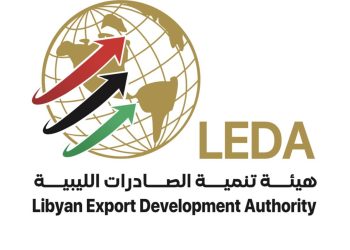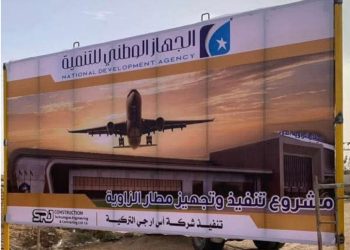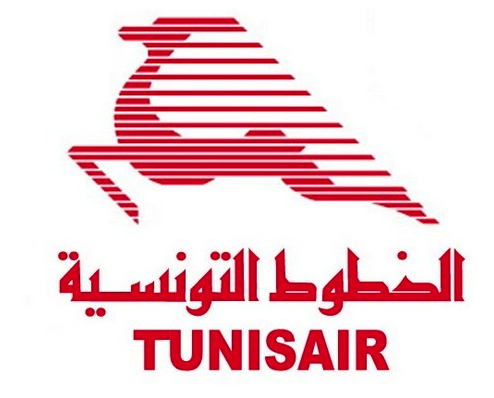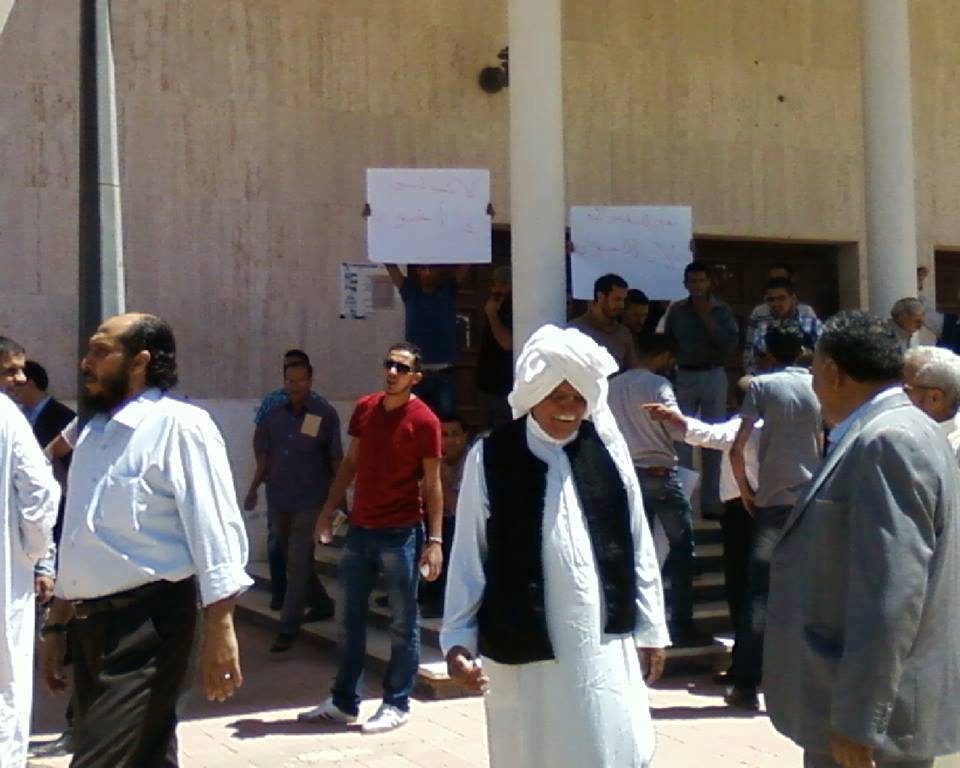By Nihal Zaroug.
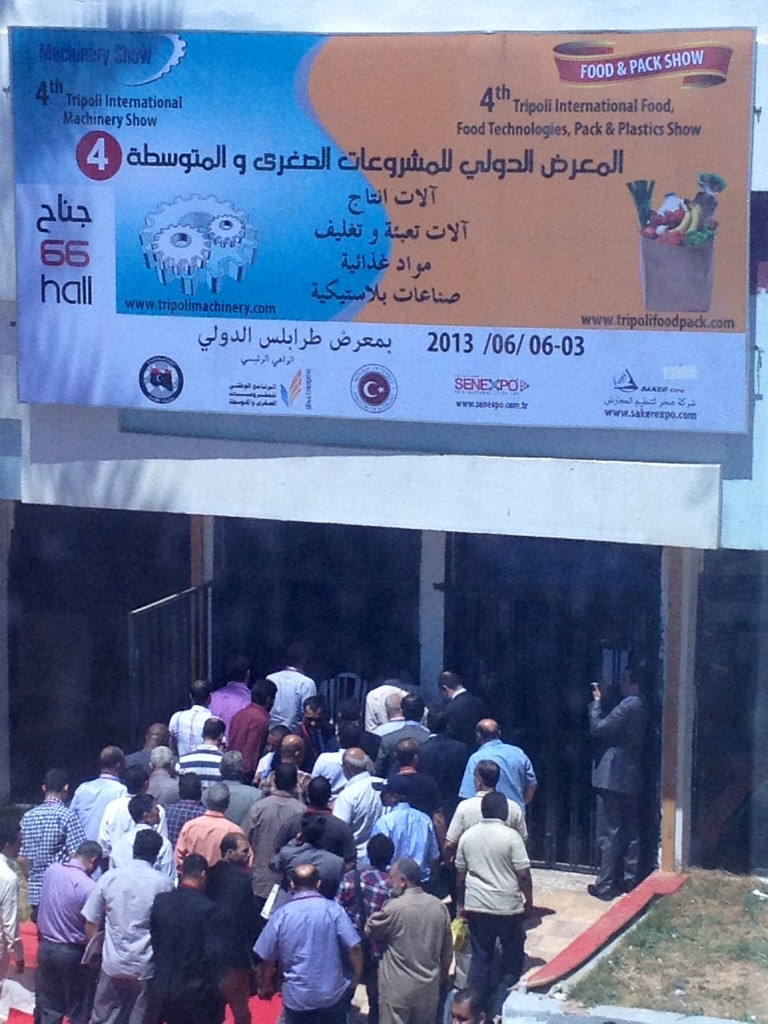
Tripoli, June 4, 2013:
The fourth Tripoli International Machinery Show and the International Food and Packaging Exhibition opened today at . . .[restrict]Tripoli’s International Fair ground.
Although the Turkish Ministry of Economy and its Libyan counterpart support the show, several other countries including Italy, Belgium, UAE, Taiwan, Egypt and India, also have companies participating this year.
The event is organised by Saker Expo and its international partner Sene Expo, under the auspices of the National Programme for small and medium-sized projects (SME), also known as Libya Enterprise, a government agency dedicated to the promotion of entrepreneurship and providing business support for start-ups.
At the official opening Minister of Economy, Mustafa Mohammed Abufunas said the show was a very important way of promoting the activities of SMEs , which were so important to the growth of the economy. Thus, his ministry was very keen to support the event.
Libya Enterprise’s director, Rajab Khalil, also spoke of the importance of SMEs and the staging of such shows, saying how they could empower young people and boost the development of leadership and creativity.
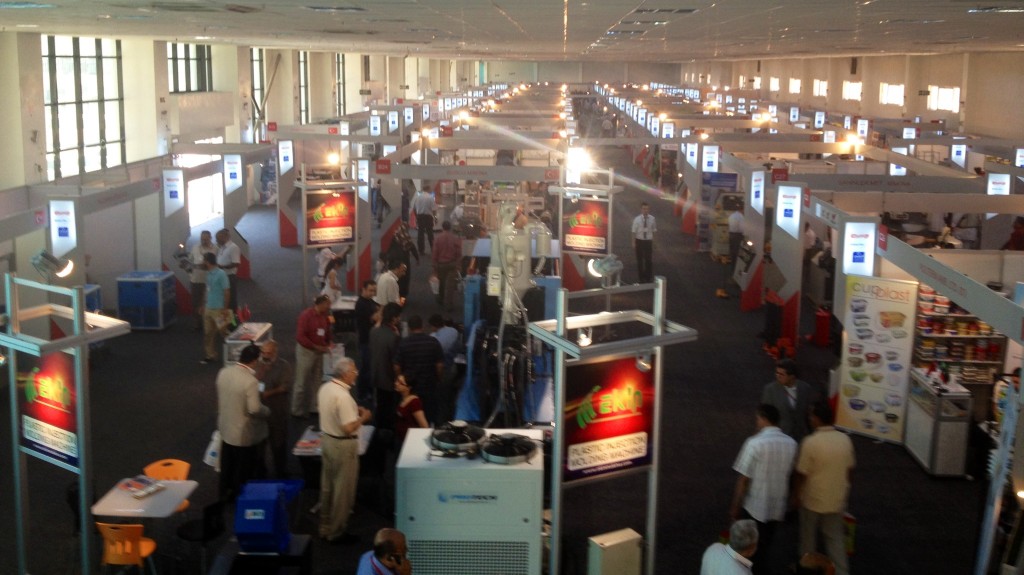
One Libyan exhibitor, Abdelsalam Farshika, the general manager of AIS, a local manufacturer of potato chips, said his firm was at the show, both to promote its products and to look for machinery to expand production. The chip company has been in business for a year and Farshika said, their Al Batal brand chips, have proved very popular and are already available in six different flavours.
Another local exhibitor Dunya Al Huria, which sells electronic appliances for use in cafes, restaurants and hotels, said their sales are directly linked to the government’s budget. The firm’s Montasir Al-Ghariani, told the Libya Herald, “when people are paid their salaries and have money, they immediately think of how to invest it.” For younger men, he said, the choice is generally to open a coffee shop. Drive through Tripoli, and you will likely see that Ghariani is correct, as small cafes seem to have sprouted on every street.
Turkish company Toper, specialising in coffee roasters and grinders, said it has been selling machinery in Libya for 20 years. Serdar Gul, a customer representative, claimed their machines process 18 percent of coffee consumed in the country. Demand for roasters and grinders in varying sizes has not decreased, he said.
The food and beverage business is indeed booming in Libya, affirmed Randy Yoon, a Korean exhibitor for T’best fruit drinks. Yoon said that the Libyan market is “hot” and locals were continuously seeking to import new products.
However, Abdulsalam Al-Rjhia, head of communications at the Justice and Construction Party (J&C), an unlikely exhibitor, said that Libyans should be expanding local production, to ease the need for imports and reliance on foreign goods. The J&C believed in the need for SMEs to help develop sectors and create employment. Al-Rjhia added, “Libya must consider ways to diversify its economy and end oil dependency. Within the next 20 years, 20 percent of revenues should not come from oil.”
Expansion does not have to be in perishable goods only, stated Al-Rjhia, pointing out that the exhibition offered several new business ideas, including the custom-printing and plastic molding industry.
One visitor interested in plastic container production, viewed the startup capital for machinery as a big problem, since machines can cost over $40,000. Yet Latife Karabulut, international trade manager of Ekin Plastic Injection Molding Machines, explained that investing in new machinery allowed for a wide range of products to be manufactured. “One modern machine with different moulds permits manufacturers to diversify their product line and boost the number of customers they can serve”, she said.
Golden City, a Libyan firm specialising in custom-printing, engraving and equipment sales, shared a similar perspective. Investing in machinery gave producers the capacity to diversify their merchandises and broaden customer base, said Mohamed Ibrahim. He added, that his firm’s machines were top-of-the-line and could be serviced by local technicians. Now that the printing industry was now operating with more freedom, it was a good option for investment, said Ibrahim. [/restrict]




